If you have water seepage in your basement, you’ve come to the right place! Water seepage might indicate a few things are happening outside your basement walls, such as hydrostatic pressure, expansive soil, or frost-heaving. In this article, you’ll learn why there is water seepage in your basement, where water seepage comes from, and seven ways to prevent water seepage.
Why Is There Water Seepage In Your Basement?
Most of the time, there is water seepage in your basement because there is an excess amount of water building up outside of your basement walls. When that water builds up, it can force its way through your walls. Here’s how.
- Hydrostatic pressure – When the soil outside your basement walls begins to absorb too much water, and you don’t have a proper drainage system in place, the water will push against your walls. This pressure will allow water to seep through existing cracks, new cracks, weak parts of your concrete (honeycombing), and any gaps around plumbing pipes.
- Expansive soil – If there is a lot of clay in the soil outside your basement walls, the dirt can swell when it absorbs water. This growth will push against your basement walls, allowing water to seep through any openings.
- Frost-heaving – If the soil freezes outside your basement walls, two things can occur. Either the soil will rise as it freezes and settle as it thaws, or the soil will expand and push against your walls. Both of these movements will exert pressure on your basement walls and allow water to seep through any openings.
Where Does Water Seepage Come From?
Here are five places where water can seep into your basement.
- Cracks – No matter the size, water can seep through any cracks in your basement walls or floor.
- Pipe penetration – When sewer line specialists or plumbers install pipes in your basement, they have to drill holes larger than the pipes themselves. After the pipes are installed, they fill the gaps with hydraulic cement. If that cement breaks down, water can fill the voids and seep into your basement.
- Cove joints – A cove joint is the space between your basement floors and walls. If you don’t have a drain tile system to collect built-up moisture, water will seep through your cove joints.
- Honeycombing – If parts of your concrete block or poured wall start to deteriorate, water can use that as an opening to seep into your basement. Honeycombing can occur on your walls, columns, footings, beams, and slabs.
- Over-the-top seepage – Water can seep through the space between the top of your basement walls and the above floor.
7 Ways To Prevent Water Seepage In Your Basement
Below are seven different ways you can prevent water seepage in your basement.
- Fill any cracks with a 2-part epoxy – If you have any cracks in your basement walls, you’ll want to get those sealed as soon as possible. When you call the professionals, like The Real Seal, we can inject those cracks with a 2-part epoxy that will waterproof and reinforce your basement walls.
- Cover your basement walls with a vapor barrier – A vapor barrier is a 10 to 20-mil thick polyethylene sheet that will cover your basement walls, preventing water seepage.
- Install a drain tile system inside or outside your basement – Depending on where it’s placed, a drain tile system will collect water that’s building up under your basement floor or outside your basement walls. This will counter cove joint seepage and hydrostatic pressure.
- Install a sump pump in your basement floor – Any collected water from your drain tile system will end up deposited in a sump pit. From here, your sump pump will eject the water out of your home once it reaches a certain level.
- Install a French drain in your yard – If your yard is prone to pooling water, a French drain will collect it and carry it off to a lower part of your property, drainage ditch, or dry well (an underground structure that disposes of unwanted water).
- Clean and add extensions to your gutters – Your gutters should not be dumping water too close to your basement foundation. By extending your downspouts at least 20 feet away from your basement, you can minimize how much water is dumped into your soil. If your gutters are clogged with leaves or branches, water might be spilling over the sides, pouring at the base of your basement. Remember to thoroughly clean your gutters as often as possible.
- Make sure your yard is graded away from your basement – If your property is sloped towards your basement, you might have a water drainage issue. You can make minor adjustments using a shovel and wheel barrel, but it’s recommended to call in professional grading experts.
Who Can Help Prevent Water Seepage In Your Basement?
If you have water seepage in your basement, and you live in the Greater Chicago area, it’s time to call in the professionals. It’s time to call The Real Seal. Since 2011, we’ve been providing homeowners with basement waterproofing, foundation repair, concrete leveling, crawl space repair/encapsulation, and more. Pick up the phone today and receive your free inspection and estimate.
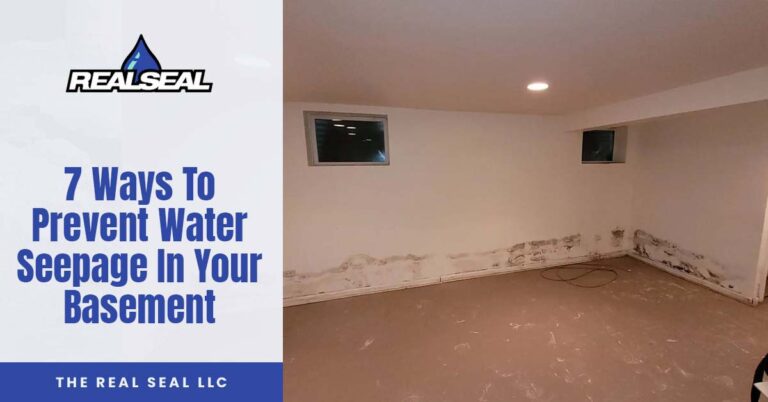
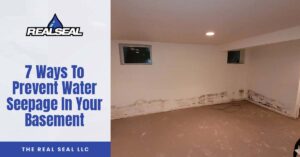
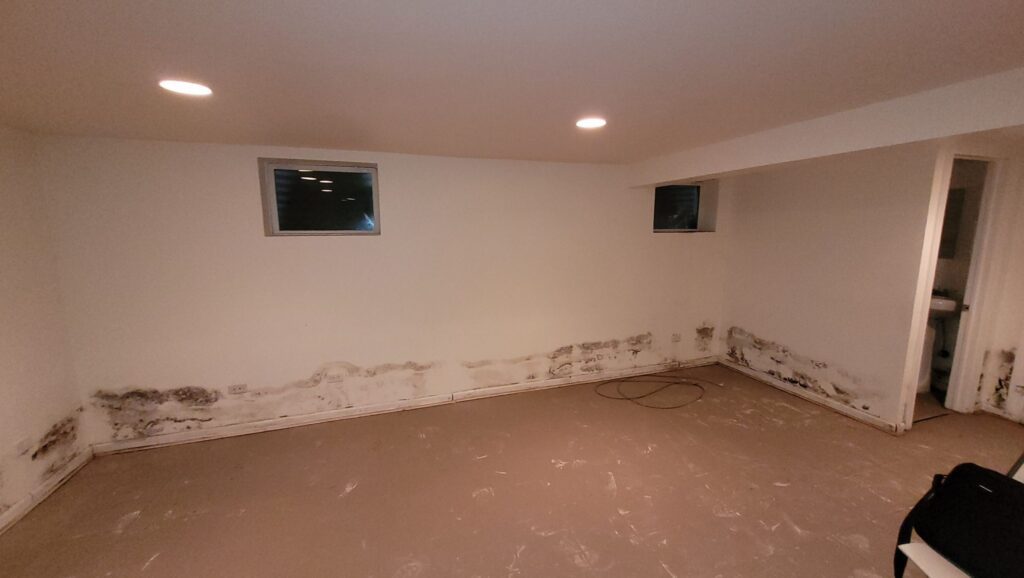
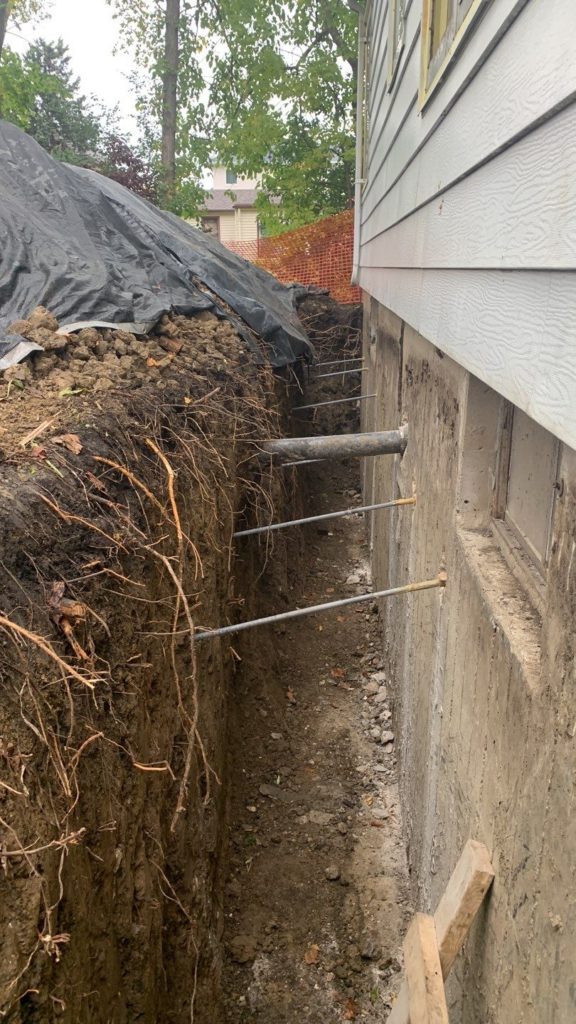
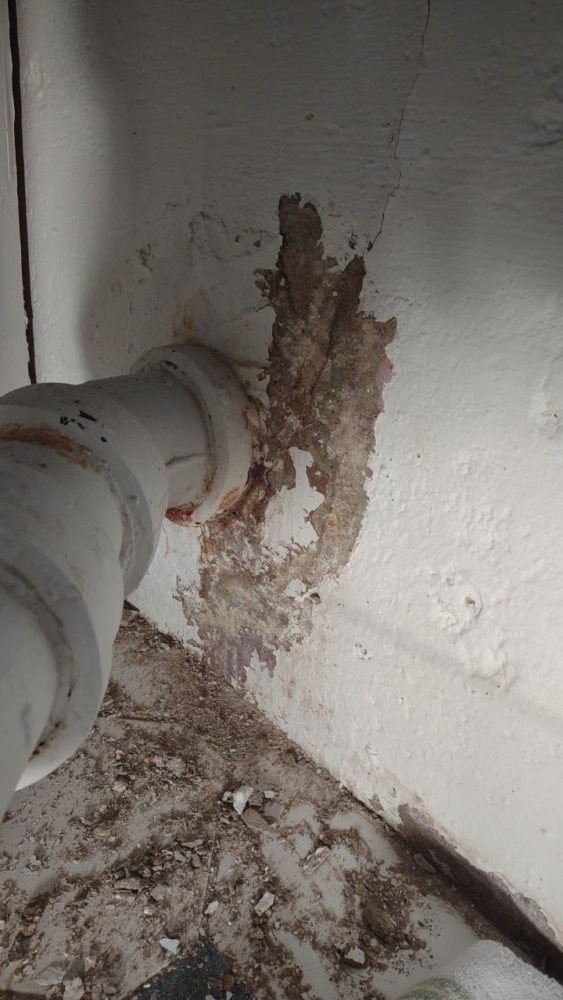
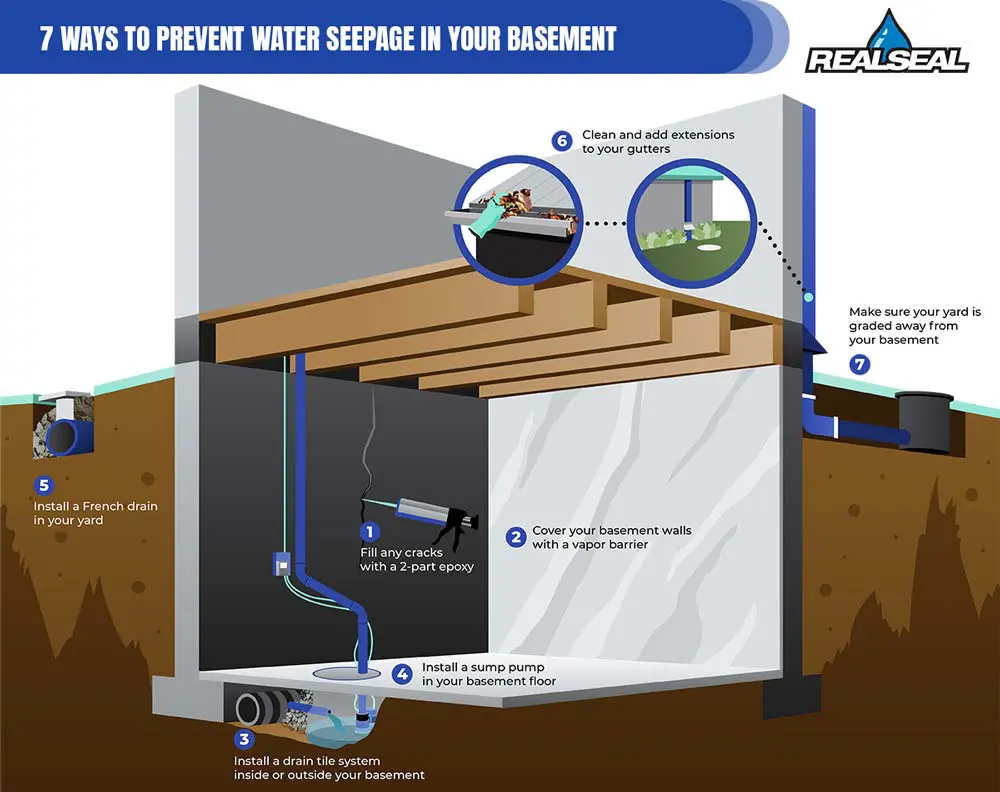
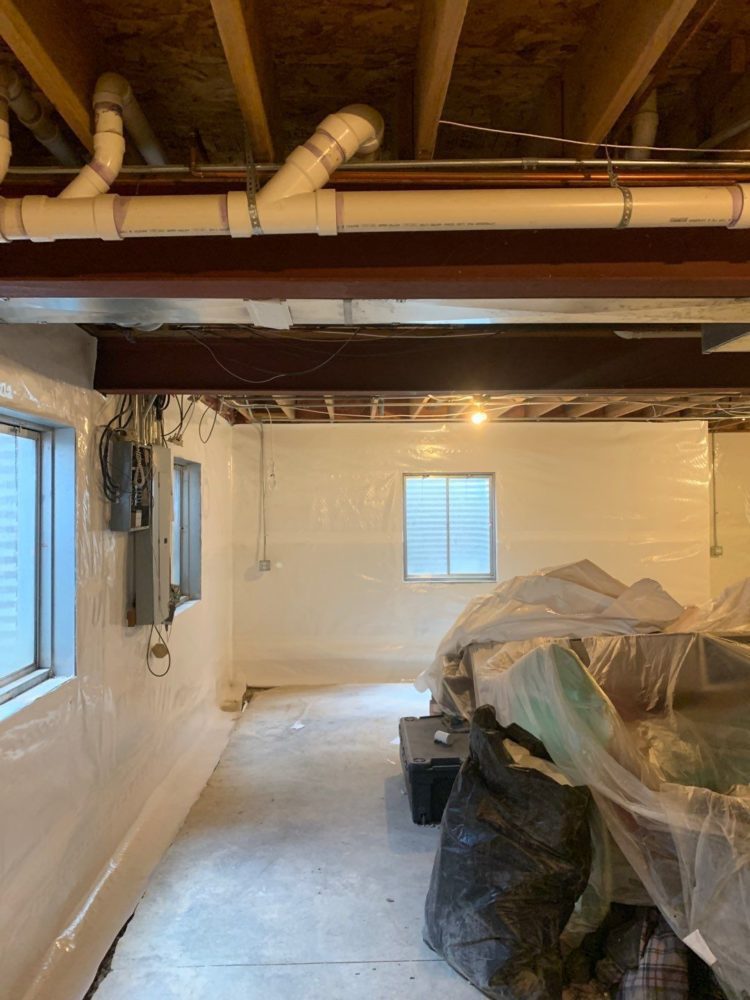
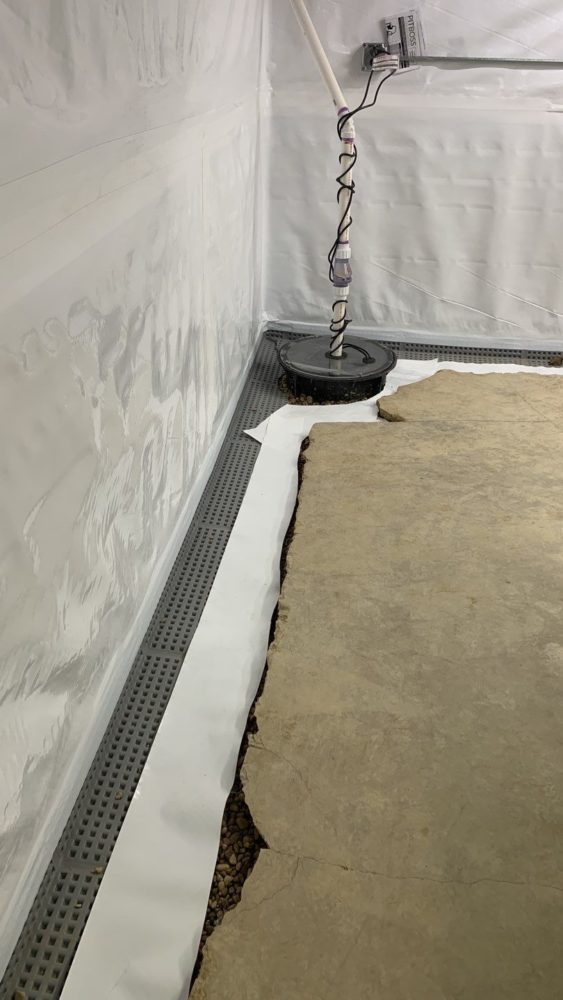
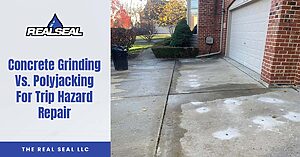
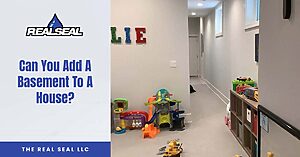
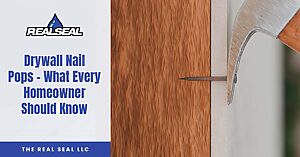
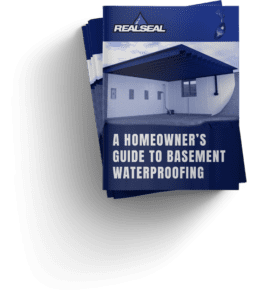

10 Responses
I need someone in Northern California do you have contacts out here I get ahold of
Hi Kieth! Bay Area Underpinning in Fairfield, CA area would be able to point you in the right direction to a local contractor. They do only Foundation Repair, but do have contacts in the area.
Austin, I made a hole on the side of the house, where the bathtub is, and I could see water coming out underneath the bathtub, how can I fix it?
Hi Carmelo! I would start with fixing the hole you made! If you made the hole to run a pipe outside, be sure you seal all around that pipe very well. Any snow, rain, etc will be able to get in there if it is not sealed properly.
Hi Austin, I have crakes and water is leaking into our basement especially bad after a heavy rain however it has completely been remodeled recently so I hate to tear into the space. Would building a front porch over the leaking areas solve our problem?
Hi Debbie!
I hate to be the bearer of bad news, but a porch built over a basement will not fix a water issue. You will need to open up the basement in order to repair the leak. The problem isn’t just water, but now mold could be growing behind those finished areas, so you really want to be sure to remove any water-damaged finishings that could be producing that mold.
I have water coming through the wall in my basement and I have tried some of everything ,caulking, stop leak spray, cement. The wall is always wet so I need something that I can use on a wet surface. Or is their someone in my area that you know of that does this type of repair, St. Louis, Mo.
Hi Joyce!
So you have tried all the DIY fixes, unfortunately those do not last very long. The best way to fix a crack is through Epoxy Injection or Exterior Crack Repair. Epoxy Injection works by filling the void with an epoxy material that effectively eliminates the path for water to enter. Exterior Crack Repair works by sealing the crack from the outside, preventing water from entering the void.
Currently we do not have any referral partners in St. Louis, I’m sorry!
Water coming into basement from outside
This is typically where the water in a flooded basement will come from, yes.